In our journey through life, we all face uncertainties and challenges that often clutter our minds with anxiety and worry. Balancing life’s unpredictabilities while maintaining a clear and peaceful mind is a skill worth honing.
If you aspire to achieve success in any facet of life, it’s crucial to create a mental space free from negativity. In this comprehensive guide, we present 26 invaluable tips to help you eliminate negativity from your thoughts, enabling you to embrace a more fulfilling and satisfying existence.
Let’s explore the practical steps for applying these tips and experiencing the transformative impact they can have on your mindset and daily life.
This post contains affiliate links. Please read our disclosure.

Are Stress and Anxiety the Same Thing?
Stress and anxiety are not the same thing. Stress is a response to a specific external situation or event, often accompanied by feelings of pressure or tension. On the other hand, anxiety is a more generalized and persistent state of unease, often without a clear trigger. While they share some similarities, such as physical symptoms like increased heart rate, they are distinct emotional and psychological experiences.
How Do I Reduce Stress and Anxiety?
Stress-reducing activities can help alleviate stress and anxiety by promoting relaxation, improving mental well-being, and offering positive distractions. Many of these activities can take time to get used to, but once you get started, there’s no telling how far they can take you in a limiting or reducing the stress and anxiety in your life. Here is a list of 26 ways of reducing stress and anxiety from your life:
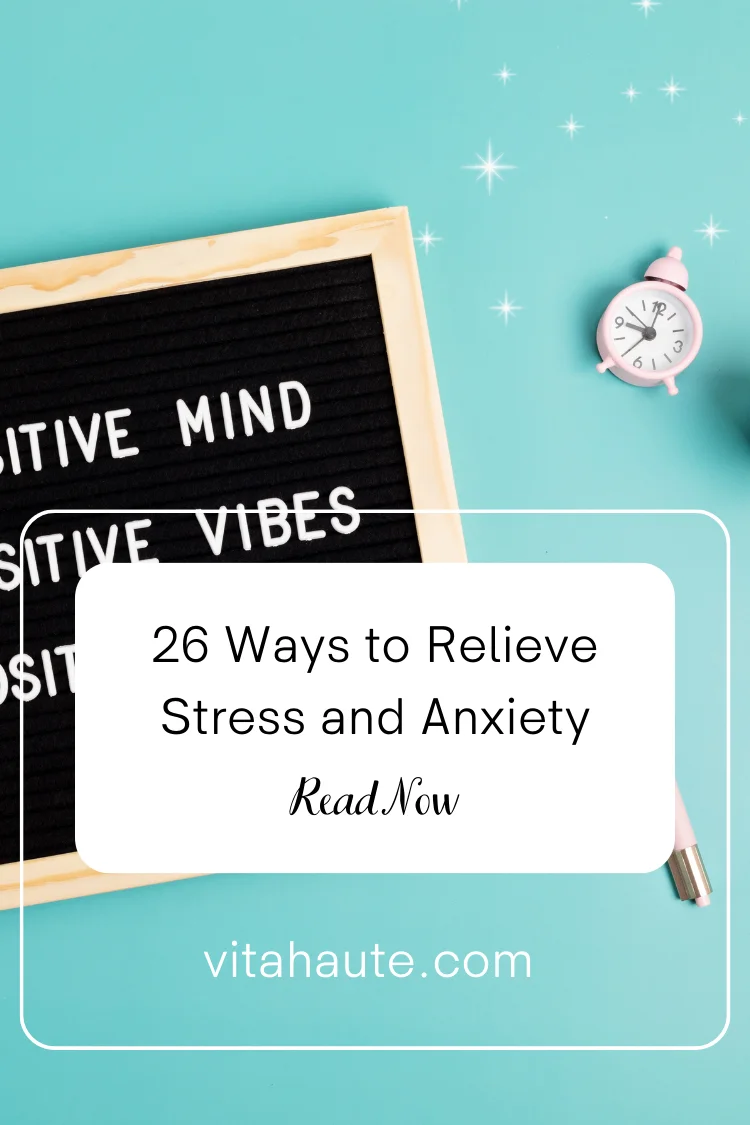
#1: Declutter Your Environment
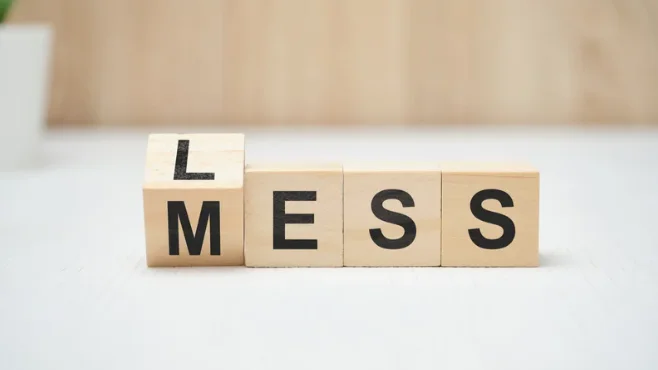
Your living space has a lot to do with the way you are feeling. Scientists have long known that our surroundings have one of the greatest influences in our personality and behavior than anything else. So it is important to have a clean space free of distraction and worry. You could clean up your desk and room and then see how are you are feeling. It is important to note that not everything that is a bit disorganized should be cause for concern. Some folks actually work better that way. Determine what it is in your surroundings that’s causing you to be less effective than usual, and try to eliminate those things.
#2: Schedule

Scheduling your activities can be a powerful tool to free yourself from stress and anxiety in your life. Creating a structured schedule gives you control and organization over your time, reducing overwhelm and decision-making fatigue. Allocating specific time for relaxation and self-care promotes well-being and reduces stress levels. Identifying potential conflicts or gaps in your schedule allows for proactive time management, preventing last-minute rushes and reducing stress. Setting realistic expectations and dedicating focused blocks of time to tasks increases productivity and minimizes the anxiety of an ever-growing to-do list. Embracing scheduling brings a sense of calm, control, and reduced stress and anxiety into your life.
#3: Unplug From Social Media
![]()
Social media can be a blessing, though there is a negative side: Studies have shown that those of us who constantly stay glued to our phones are less likely to complete our tasks and responsibilities. Social media can help us in many ways. It can educate us and entertain, and if you use it wisely, he can help you achieve your goals. However, it can be a total distraction for some. Cut back for several weeks and see if you notice a difference. You likely will.
#4: Let Go
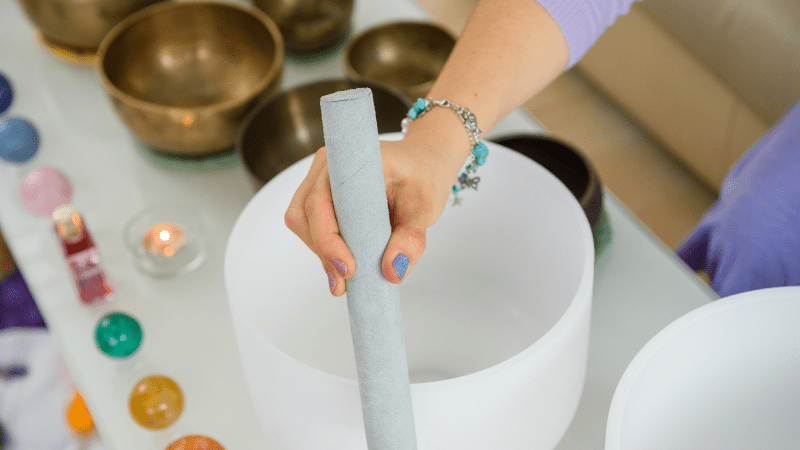
We all have personal baggage–events and situations from our past that tend to arise in our mind from time to time, and they can intrude and prevent us from attaining what we deserve. If you find that you are constantly thinking about something that happened months or years ago, then it is time to let it go. Simply tell yourself that you’re not doing anything productive by thinking about this event, and that you will achieve a lot more when you stop this bad habit. Practice at willing yourself to let go of the things that don’t matter will make your life better in many ways.
#5: Admit You Have a Problem
Oftentimes we don’t pay attention to our own selves. This can reflect in our own words or body language. A great way to determine how much of a negative attitude you have is to create a chart with two columns. Write down all the positive thoughts you had that day. And on the other, you will write down all your negative thoughts. You’ll be surprised that how negative thinking thought patterns can be kept at bay with this one simple technique.
#6: Exercise

Moving your body is a terrific way to change your mood and attitude. You don’t have to run a marathon or swim across the English Channel. You could dance, take a walk, or do some other exercise. Dancing is a great activity to allow your mind to dwell on something else. Turn on your favorite music and move and groove for several minutes.
#7: Practice Gratitude

Embrace the remarkable power of gratitude and let it transform your life. Shift your focus from what may be lacking to what is present and valuable in your life. When you cultivate gratitude daily, you can expect to experience the joy and contentment it brings. Acknowledge and give thanks for both big and small blessings, and watch as this gratitude infuses your life with happiness and grace.
#8: Talk About It

It’s important to find a friend, family member, or someone who cares for you and will listen to your problems without judging you. You could also write in a journal or start some craft activity. Being involved in an art activity is a great way to give your mind something else to think about. Plus, time will flow faster, and you’ll enter what’s known as a state of flow. The state is ideal for anyone who is pursuing goals, for it it allows you to concentrate on one thing at a time and give your most undivided attention.
#9: Change Your Language
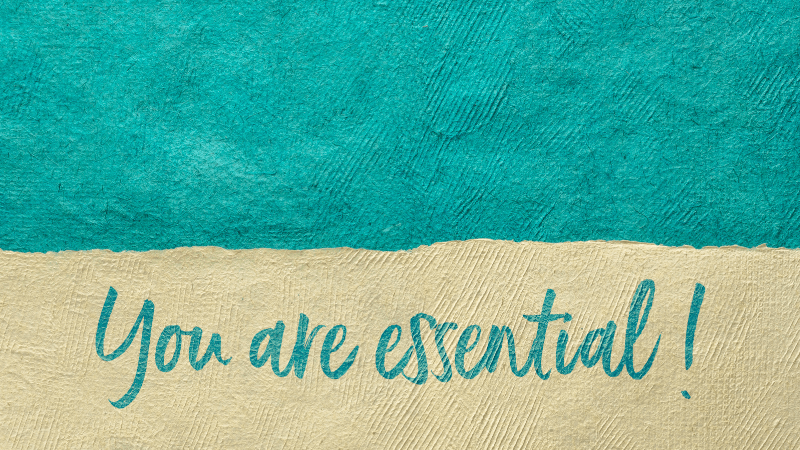
Pay attention to the words and phrases that you do use on a day-to-day basis. It’s also great if you can take a look at your posture. Sometimes when we are depressed, our bodies will reflect that. So whenever you can, smile as much as possible, and have interact, confident posture.
#10: Find Laughter

These days, it isn’t hard to find laughter. Whether it’s a funny movie, TV episode, or a book, we can all find ways to have our funny bone tickled. Scientists have long known that laughter can be of benefit to us all. It releases endorphins, which is the pleasure chemical, and it can also contribute to better health. So don’t feel guilty for laughing more. This brings us to our next point…
#11: Turn the Frown Upside Down

On the other hand, whenever you frown, you’re using more facial muscles. It’s important than to turn it the opposite and make it a smile. You can do this by looking in the mirror and practicing. You’ll become better at it with time. In time, you’ll be noticing that you’re smiling without even constantly trying it. At that point you know that you are set to go and that there’s nothing stopping you from 🙂 even in the hard times.
#12: Speak Positive Words
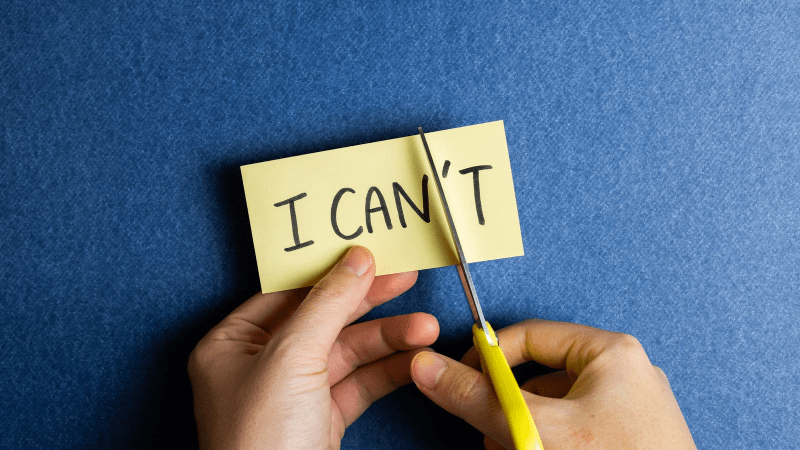
Whenever we speak positive and cheerful words, our mind will subconsciously attribute to his words to our daily lives. This can be a mantra that you tell yourself each morning, or just positive thoughts that you silently feed yourself during the course of the day. Words can have so much power, that athletes are well aware of the power of positive self talk. This is a skill that may take some time to start getting better at, but as with everything, the more you do it the easier it’ll become.
#13: Practice Healthy Habits

For most of us, it is easier to have a positive mood whenever one is feeling good inside and out. Staying healthy means eating the right foods and getting the proper rest. It also means avoiding negative people and situations for a better psychological standing. Take out a book on exercise and start practicing every day. Get ready to be surprised at how quickly your physical body changes, and soon you’ll start to feel much better mentally. This in turn will be reflected in your day-to-day life.
#14: Get Spiritual

Most religions promote a positive outlook in life. If you’re not part of an organized religion, then you may wish to start reading or watching videos on how to improve your spiritual connection. You could read a religious book that promotes goodwill and happiness, or enjoy a movie that will teach you the many ways that a positive attitude and it hits our lives.
#15: Read a Book

This could be either a nonfiction or biographical book. Whenever we read about others lives in the impact they have made to society, we can then be assured that success is possible despite whatever circumstances may have come their way. You could pick out a book from the library if money is an issue. The main idea is to drive inspiration from the stories of others who have overcome challenges, or others who have gain success through hard work.
#16: Practice Mindfulness
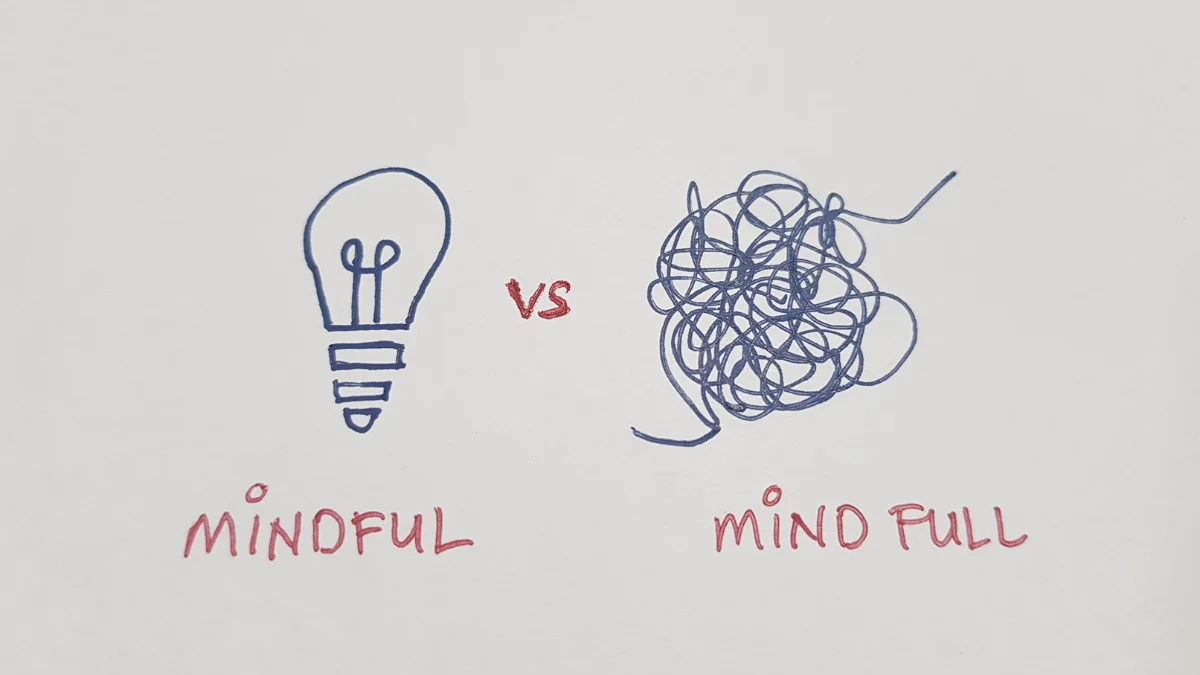
Mindfulness is the art of focusing one’s attention on the task at hand. This can be extremely useful for those of us who have wandering thoughts and need to quell them. Once we are in a more peaceful state, we can concentrate better and best pursue our dreams and goals. There are many books and videos that can give you tips on how to practice mindfulness.
#17: Speak to Yourself
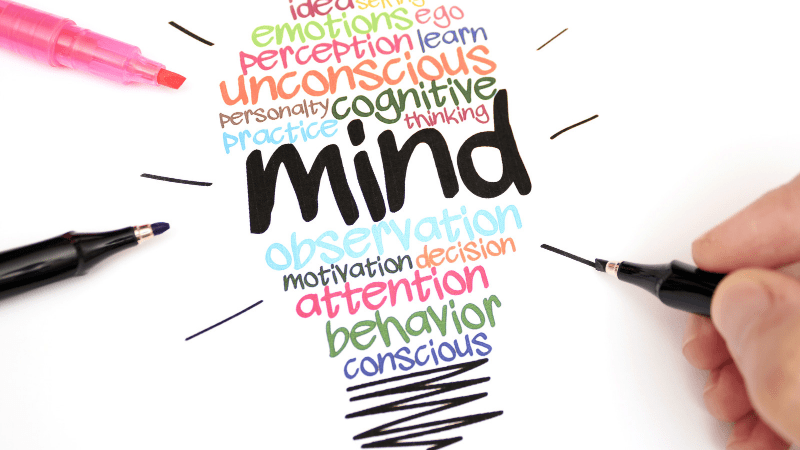
Talking to yourself doesn’t have to be verbal or audible. You could write yourself a message encouraging yourself. Or you could even record a message to yourself that you’ll hear every morning upon awakening so you start your day on the right foot.
#18: Sing

Singing can be of benefit to all of us both physically and mentally. Doctors have long known that listening to a song or two can take your mood from down to high. The reason for this is that when you sing you release endorphins, which are the pleasure chemicals. Among the wide variety of music I enjoy listening to, I’m most fond of pop songs in different languages. Don’t be ashamed to turn on the radio and listen to your favorite tunes and sing along. Music has the added benefit of increasing intelligence, which is great. Not only are you enjoying yourself, but you are improving your IQ as well. This will allow you to enjoy singing even more.
#19: Drink Coffee

Drinking coffee is a great way to give yourself an instant boost. This is because of the caffeine. If you’re working on a project, then caffeine just might be the thing that’ll help you. But of course, as with all things, moderation is key. If you have problems with caffeine, try tea.
#20: Stretch

Stretching can be a wonderful way for you to give yourself an instant boost of joy. You are releasing endorphins, which are going to immediately switch your mood. As you stretch, you may take deep breaths in and out. Breaths are important for us if we want energy. You may consider adding weights to enhance your workout, though just stretching is fine.
#21: Play Video Games

Video games receive a bad rap because there are many who struggle with addiction. But the benefits of video gaming are many, including improved reflexes and an increase in happiness. One of the disadvantages though of video gaming is the risk of eye injury. So if you do it, make sure you wear protective gear. There have been a number of cases of video gaming enthusiasts who passed out after an all-nighter of playing games. You’ll want to drink as much water as possible and make sure you’re getting enough sleep and taking care of yourself physically.
#22: Solve Crossword Puzzles

Keeping ourselves intellectually stimulated can be a great way for us to forget our troubles and bring a smile to our face. Crossword puzzles are just such an activity. It doesn’t only have to be a crossword puzzle. You could try sudoku, anagrams, or other word or math puzzles. When you sit down to try to solve these puzzles, you may also begin to think of certain situations in your life. You will find that they will not seem as bad as they are. Crossword puzzles can also enrich our brains. Any activity that can benefit you both emotionally and intellectually is something you want to practice as often as possible.
#23: Try Creative Writing

Putting your thoughts down on paper is an excellent way to let your feelings out. When we keep things bottled up, we tend to exaggerate certain details of our lives, causing us to become more worried than we actually are. Writing down your thoughts allows your subconscious to free itself and make you more receptive to happiness. It can be poetry, songs, or just free thoughts. But the key is to spill out as much as you can from your mind. In a way, writing is a form of meditation because you are focused on the task at hand and letting out all mental distractions. This is great for mental health and in addition, you are improving your writing skills.
#24: Tidy Room
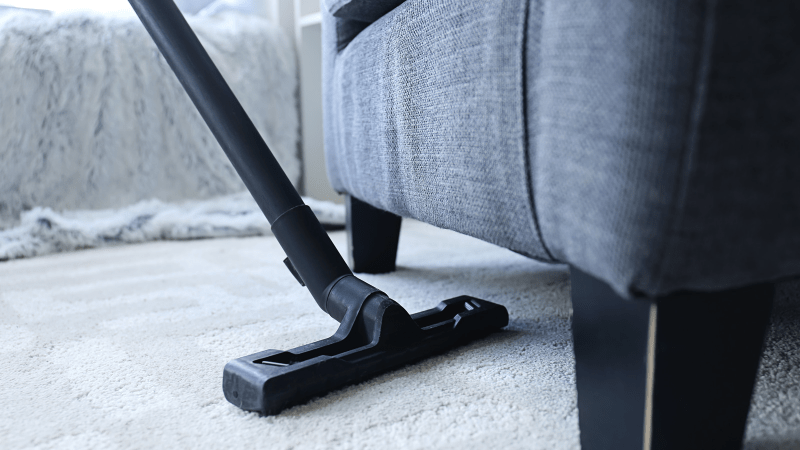
At times, we might not be feeling our best for no apparent reason, even after participating in an activity that we enjoy. In this case, arranging and organizing your living space can help. An organized and clean space can provide a sense of peace and calm that can benefit you. Even if it seems like cleaning the entire room is not possible in a short period of time, start by doing a bit and continue later. Soon your environment will be clean and free of clutter, which can uplift your mood.
#25: Get Proper Rest

Sleep has the ability to repair our bodies and our minds, and if you’ve been busy during the week and can’t think of anything else to do to improve your mood, then sleep is a great choice. It is important to avoid oversleeping. Napping is also a good option. It can be a challenge for some to over-nap, so try to work it out so that you get enough rest from napping without it turning into a full sleeping session. 6 to 8 hours of sleep each day is recommended. Proper rest can also fortify you emotionally and minimize the chances of procrastinating and giving up too early.
#26: Watch a Movie

Watching a movie can be a great way to take a break from reality and feel better. Films have the power to transport us to another world and make us forget about our daily problems. To boost your mood, choose a movie that you know will bring you instant pleasure, and avoid genres that may make you feel worse. Instead, opt for movies in the adventure, comedy, or romance category. If you have a favorite movie from childhood that made you smile, consider watching it again.
Takeaway
Mastering the art of decluttering your mind to foster optimism is achievable with the implementation of our tips. Witness a transformative shift in your attitude, making success more attainable through self-belief and perseverance. Success becomes both an accessible and captivating journey when you adopt a fresh mindset. Good luck on your path to a more fulfilling and positive life.
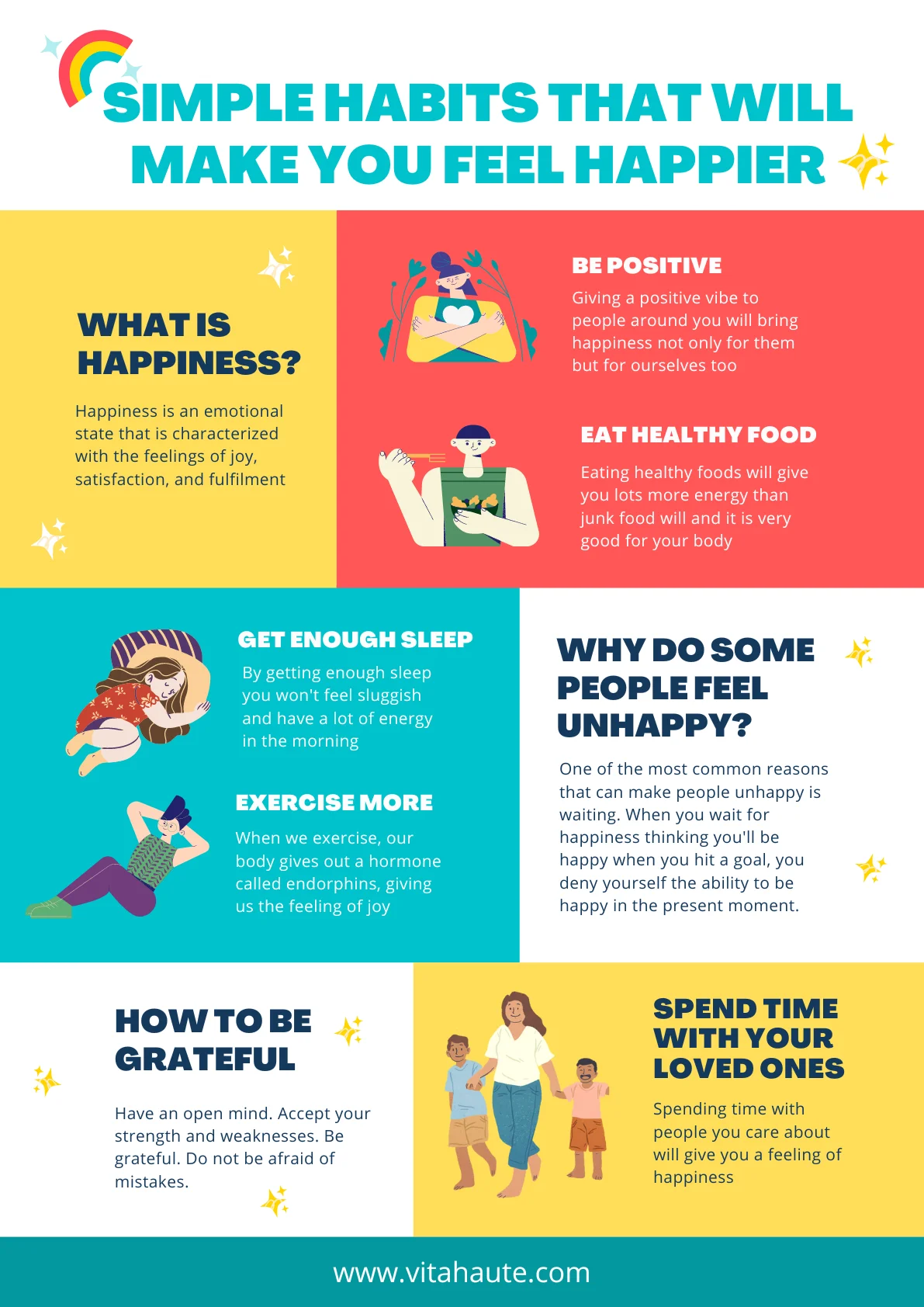
Disclaimer: The information provided in this blog post is for informational purposes only and should not be considered a substitute for professional medical advice. I am not a physician, and the content here is based on research and personal experience. It’s essential to consult with a qualified healthcare professional for personalized guidance on any medical concerns. Always seek the advice of your doctor or another qualified healthcare provider regarding any questions you may have about a medical condition.



